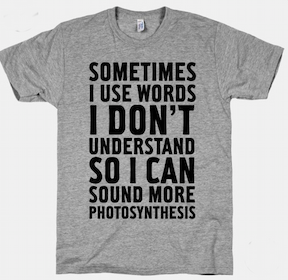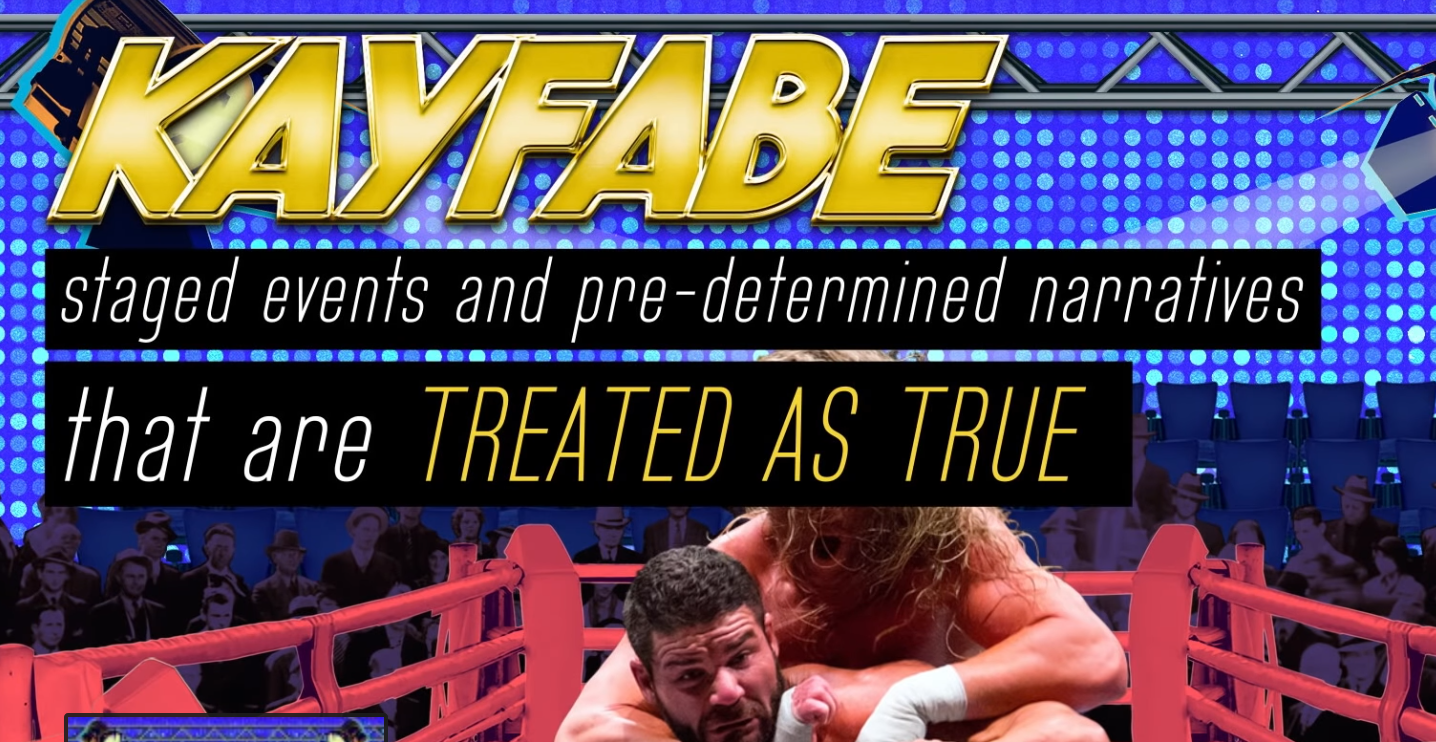
What’s the buzz about buzzwords?
“This article about Buzzwords focuses on how obtusely engineered language content leverages greater idea acceptance across various work and social engagement opportunities by enhancing positive content consumption.”
You may not know what I just said about buzzwords.
I’m not sure if I do myself. However, we all do know a buzzword or a cloud of buzzwords in sentence when we hear or see them.
Buzzwords. What are they?
Buzzwords. Words and phrases that seem jargoned to the point of being hip or calculatedly ambitious, haughty, Impactful, powerful, yet at the same time often extremely ambiguous.
At the end of the day, buzzwords are often the exact opposite of what we seek to do when we employ words in everyday conversation – to be simply and clearly understood.
With buzzwords, we often seek to impress or use them as countermeasures to repel deeper questions or accountability for the actions behind those words. For example…
“We need to leverage the digital transformation by level-setting the paradigm to create synergy to the redefine active state of the system”
So, you are saying that you DO want me to plug in the light?
That example sentence could apply to so many things and actions. But it sure sounds important.
That’s one of the amazing things about buzzwords.
They seem powerful., brisk and active. Yet as you put more of them together in the same sentence, the less they actually say and less true impact they have.
Why do we use buzzwords?
Unlike most words, they’re really not meant to communicate for understanding but to signal whether you are a part of a given culture or for virtue signaling.
In culture, Buzzwords serve as culture definers and insulators.
Hipsters. Teens. The military. Tech professionals and others all use physical, cultural and linguistic cues that are used to define and wall off each group’s culture and identity.
In this regard, buzzwords used in each group serve as linguistic drawbridges and moats that are raised to tell others, the castle is here, the linguistic drawbridge is raised and you cannot cross over.
For buzzwords, the language of teens comes to mind.
As a non-Gen Z, I cannot use terms like BAE, On Fleek, Lit, or Fire without a teen looking at me like I’m a 40-year-old man trying to wear skinny jeans. Oh, and I so want to.
Such words are designed to be inside-the-group language. So if I or these kids’ parents tried to use it, it will likely result in eye-rolling and some of those kids saying, “Whoa, those are not for you. For God’s sake, stop! Don’t cross the linguistic drawbridge. Stay on your side of the moat.”
Buzzwords in Tech and Business.
Buzzwords in business tend to serve two purposes: 1) communicating alignment in identity and 2) camouflaging lack of knowledge or requests for accountability.

One: Alignment. Buzzwords signal that you carry or hold in-fashion ideas.
If I were to say “click” that button in the mobile app, more than half of UX and strategy friends heads would immediately snap to look at me in horror.
Why?
In mobile and tech lexicon, you don’t say “click,” you “tap” on something.
That is the language or lexicon the tech culture accepts. So to not use such approved language would signal that I am not in or of that culture.
In business, the words we use are like the clothes we wear. They need to be fashionable and look the part for the group we are seeking to impress. Buzzwords act as those clothes.
Just like Zuckerberg and Jobs made hoodies and black turtlenecks and jeans the visual language of tech people used worldwide, executives and corporations understand they must wear the right words when talking to customers and shareholders.
Content developers like copywriters know that’s happening when clients suddenly ask to include industry-hot buzzwords and phrases in speeches and marketing materials. At one time specific phrases like “digital transformation” and “the cloud” were peppered into any content delivered to show the press, prospective clients or customers, that the business communicating to them is wearing the right and fashionable clothes when it came to hawking new technology and systems.
“Admired industry people are talking about the cloud or big data,” thinks a client. “Ok, I’ll use those words as well.”
It’s “us too” as business speak. No different than the person who buys Affliction (or whatever is popular) brand clothes to signal he’s part of a specific crowd.
Two: Buzzwords are meant to be felt rather than questioned.
I have worked with clients and tech companies that have the urge to speak in full buzzword speak. Often because they believe it offers what they feel is the best of both worlds. Sounding important by having the lexicon of the in-crowd but so unclear to make them understood and unaccountable for what’s said.
For instance, the buzzword “customer-centric.”
“Customer-centric?” Didn’t that used to be simply “pleasing users” or “we focus on the customer?” I guess we can’t say that anymore.
So why the change in the language by most companies?
Frank Zappa once said that, in music, there is no change in music (genre) without a change in uniform.
Heavy metal needed to look different than 70’s Rock “n Roll (Big hair, you’re on stage in five minutes!). Grunge needed to look different than 80’s synth-pop (Buzz off leather jacket with big shoulder pad, flannel is in!). Changing buzzwords for business and tech is the uniform change that signals the bigger change.
Buzzwords to obscure one’s level of knowledge, accountability or competency.
Tech has changed industries and businesses faster than the people employed in them have been able to comprehend and adapt to the change.
A lot of people that were used to older, more traditional ways of doing things, have quickly found a new world that is hard to understand and racing past them. Media buying print ads turning to ad exchanges. Marketing executives finding themselves having to understand things from Google Adsense, retargeting, social media, CRMs and digital interfaces or processes like Agile management (What’s a scrum? Is that a sports term?)
In order to be seen as having the knowledge to be in and part of the in-group, in this case, business groups like marketing. Buzzwords are the way to signal that you do indeed belong. That you are keeping up on your skills. This even when you might be behind on knowledge and expertise. So until you understand the technology, many simply lean on buzzwords as skills camouflage.
It’s possible to say “digital transformation” to look like you’re on the cutting edge as you give speeches or talk about your product, even though you have no clue on what’s being transformed or what transformation means for your company.
Buzzwords in this context also prevent revealing knowledge.
Because they are considered language of the insider. To say a jargoned phrase like “We must operationalize our strategies and holistically administrate around hybrid cloud delivery in order to drive exceptional synergy.” assume the recipient understands the deeper meaning. For a lister to call one term out “What’s a hybrid cloud? or What’s synergy?” outs them as an outsider.
So with people on the inside (deserved or not) not wanting to be outed. No one asks deeper questions and assumes the language is self evident.
The result is that the ignorant-to-less knowledgeable people can exist in plain sight within the organization by mimicking the style and level of language the industry or group is using, they won’t be called out as different
The best way to call BS on buzzwords? Ask for details.
As much as we use buzzwords, they are actually quite brittle and delicate. Most contain a content or logical argument fragility that relies on a tacit agreement between the speaker and audience to not touch or poke at them too harshly, hence they’d break it. It’s also this lack of challenge that keeps such buzzwords weak. If no one asks, “what exactly is digital transformation?” the idea around it never gets honed and sharpened to become stronger.
It’s why people who lean heavily on buzzwords as key pillars in speeches and sales pitches, find their messaging rarely survives facing true scrutiny and skepticism.
Without a robust plan or knowledge, they will quickly pivot to different buzzwords or different topics.
Or as they say, “this results in changing the paradigm, pivoting to differently focused word structuring in order to achieve a strategic quick win.”
You know what I mean, right?
Interesting buzzword resources and articles.
From The Atlantic:
Corporate Buzzwords Are How Workers Pretend to Be Adults
From the Muse:
30 Buzzword-y Phrases You Should Cut From Your Vocabulary (Like, Right Now)
From Wordstream:
The Ultimate A-Z Marketing Buzzwords Bible






























